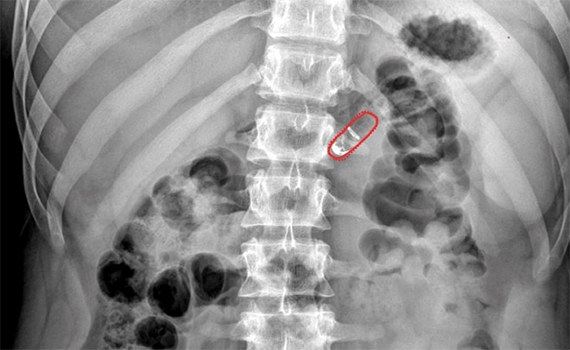NEWS
Introduced "smart capsule", making painless injections from inside the intestine

Indian developers are testing the RaniPill smart capsule for injection without a syringe and pain directly into the intestinal wall.
Nobody likes injections, but for some patients they turn almost into real hard labor. For example, patients with type I diabetes are sometimes forced to inject insulin several times a day. Therefore, the developers do not leave attempts to create a more "humane" replacement of needles and syringes. A new such project was presented by the famous Indian inventor of medical instruments Mir Imran (Mir Imran), the creator of an implantable defibrillator. According to the IEEE Spectrum, the prototype device has already been successfully tested in humans.
Imran's team has spent more than seven years on the development of the RaniPill smart capsule. The miniature device is swallowed, and its membranes dissolve already in the acidic environment of the stomach. This leads to the mixing of two chemicals in a special microcapacity and the release of a small amount of carbon dioxide. Gas inflates a tiny elastic sphere, like a balloon, - and already under its pressure, needles are pushed out of the capsule, injecting the drug directly into the intestinal wall.
It does not contain pain receptors but is densely penetrated by a network of vessels, where the medicine immediately goes. Meanwhile, the remaining parts of the capsule, including needles made from biodegradable polymer, dissolve, and some fragments come out later along with the digested food. The developers have demonstrated that using the RaniPill does not cause problems when swallowing, passing through the digestive tract and even when inflating the “ball” and triggering the needles.
Tests were conducted with about a hundred experimental animals and various potentially useful drugs, including insulin. Tests on 20 people ended successfully, although in this case the Imran team so far did without drugs, only checking the sensations of volunteers from using the “smart capsule”. They really didn’t feel any pain from such a hidden injection.
At the next stage, tests will be conducted with real patients and real drugs. The inventors themselves plan to supplement their “smart capsule” with a small wireless sensor, which will give a signal as soon as the medicine is delivered to the target.



